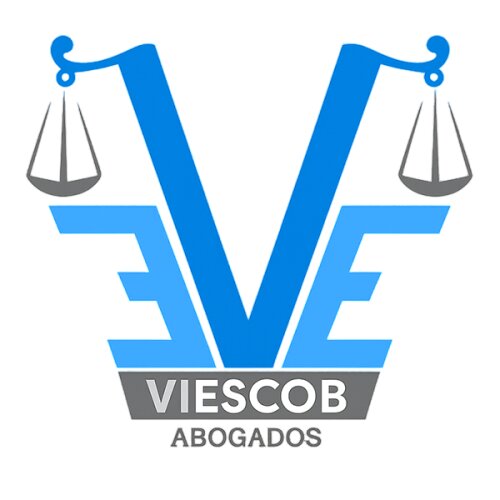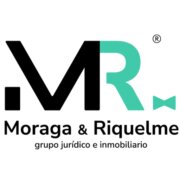Best Mortgage Lawyers in Providencia
Share your needs with us, get contacted by law firms.
Free. Takes 2 min.
Free Guide to Hiring a Real Estate Lawyer
List of the best lawyers in Providencia, Chile
About Mortgage Law in Providencia, Chile
In Providencia, Chile, mortgages are a common method for individuals and families to finance the purchase of homes, apartments, and commercial properties. A mortgage (hipoteca) is a legal agreement in which real estate is used as collateral for a loan. The laws and processes surrounding mortgages are governed by Chilean national legislation, as well as local regulations that may apply in Providencia. Whether you are a first-time homebuyer or looking to refinance, understanding your rights and obligations under mortgage law is crucial for protecting your interests.
Why You May Need a Lawyer
There are several situations where seeking legal advice in the field of mortgage can be beneficial, such as:
- Negotiating mortgage terms with a bank or financial institution
- Reviewing and explaining clauses in mortgage contracts
- Addressing potential disputes or breaches of contract
- Dealing with foreclosure or default situations
- Transferring or inheriting mortgaged property
- Clarifying the implications of co-signing or acting as a guarantor
- Understanding tax implications and local regulations for property with a mortgage
An experienced lawyer can help you navigate the complexity of mortgage applications, ensure your rights are protected during the purchasing process, and provide representation in case of legal conflicts.
Local Laws Overview
Mortgages in Providencia, as in the rest of Chile, are primarily regulated by the Chilean Civil Code and various financial regulations. Some important aspects include:
- All mortgages must be formalized by a public deed before a notary and registered at the Conservador de Bienes Raíces de Santiago (Property Registry of Santiago)
- The maximum loan-to-value ratio and interest rates are regulated by the Financial Market Commission (Comisión para el Mercado Financiero - CMF)
- Payments must be made in UF (Unidad de Fomento, an inflation-indexed currency unit), pesos, or other agreed forms
- Foreclosure processes, rights of the debtor, and procedures for repossession are detailed in specific laws and require judicial intervention
- If you are buying new properties in Providencia, developers may have specific requirements or restrictions regarding mortgage acceptance
- Special rules may apply to foreign buyers, property transfers, and taxes when a mortgage is involved
Understanding both the general framework and any local specifics can help prevent issues and ensure a smooth transaction.
Frequently Asked Questions
What is a mortgage in Providencia, Chile?
A mortgage is a legal contract where a property is pledged as collateral for a loan, typically for purchasing real estate. The lender can claim the property if the borrower fails to meet their repayment obligations.
How is a mortgage formalized?
Mortgages must be signed before a notary public and then registered at the Property Registry (Conservador de Bienes Raíces) to be legally valid.
Can foreigners obtain a mortgage in Providencia?
Yes, foreigners can apply for mortgages in Providencia, but banks may require additional documentation or impose higher down payment requirements.
What happens if I fall behind on my mortgage payments?
If you default, the lender may initiate legal proceedings to foreclose on the property. Chilean law provides a judicial process that protects both lender and borrower rights.
Is it possible to refinance a mortgage?
Yes, refinancing is possible. You can negotiate with your current lender or shop around for better terms with other banks or financial institutions.
Are there any taxes involved in mortgage transactions?
Yes, there may be taxes such as stamp duties, registration fees, and capital gains, depending on the transaction type and property value.
What documents are required for a mortgage application?
Typical requirements include proof of income, identification, property details, and other financial documents. The bank may also request an appraisal of the property.
How long does the mortgage process take?
The process can vary, but typically takes between four and eight weeks from application to registration, depending on complexity and the parties involved.
What is the role of a notary in the mortgage process?
The notary ensures the legality of the mortgage contract, witnesses the signing, and certifies the public deed before it is registered.
Can I transfer a property with an existing mortgage?
Yes, but you must have the lender’s approval. Often, the mortgage must be paid off or transferred to the buyer, who will then take responsibility for the remaining balance.
Additional Resources
- Conservador de Bienes Raíces de Santiago: Property registration and documentation
- Comisión para el Mercado Financiero (CMF): Official information on financial regulations and consumer rights in banking
- Municipality of Providencia: Local housing and property guidelines
- Chilean Ministry of Justice: Information on notaries and legal procedures
- Real estate associations and local bar associations for referrals to qualified legal professionals
Next Steps
If you are considering obtaining a mortgage, facing difficulties with an existing mortgage, or planning to transfer property in Providencia, the following steps can help ensure your interests are protected:
- Gather all relevant documents related to your property and finances
- Request a copy of your property title and existing mortgage deeds
- Contact a qualified real estate lawyer familiar with Providencia’s local practices
- Schedule a consultation to review your situation and discuss your goals
- Follow your lawyer’s guidance on negotiations, contract signing, and official registrations
- If issues arise, your lawyer can represent you in mediation or court if necessary
By working closely with a local expert, you can navigate the mortgage process confidently and safeguard your investment in Providencia, Chile.
Lawzana helps you find the best lawyers and law firms in Providencia through a curated and pre-screened list of qualified legal professionals. Our platform offers rankings and detailed profiles of attorneys and law firms, allowing you to compare based on practice areas, including Mortgage, experience, and client feedback.
Each profile includes a description of the firm's areas of practice, client reviews, team members and partners, year of establishment, spoken languages, office locations, contact information, social media presence, and any published articles or resources. Most firms on our platform speak English and are experienced in both local and international legal matters.
Get a quote from top-rated law firms in Providencia, Chile — quickly, securely, and without unnecessary hassle.
Disclaimer:
The information provided on this page is for general informational purposes only and does not constitute legal advice. While we strive to ensure the accuracy and relevance of the content, legal information may change over time, and interpretations of the law can vary. You should always consult with a qualified legal professional for advice specific to your situation.
We disclaim all liability for actions taken or not taken based on the content of this page. If you believe any information is incorrect or outdated, please contact us, and we will review and update it where appropriate.










